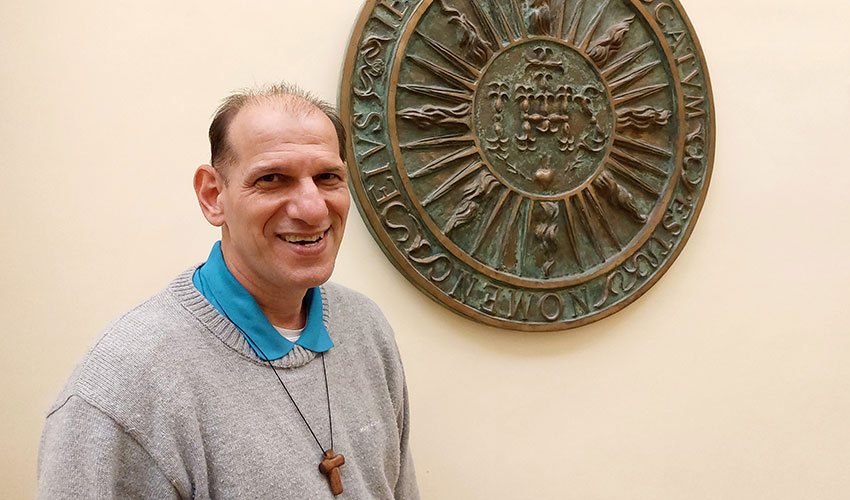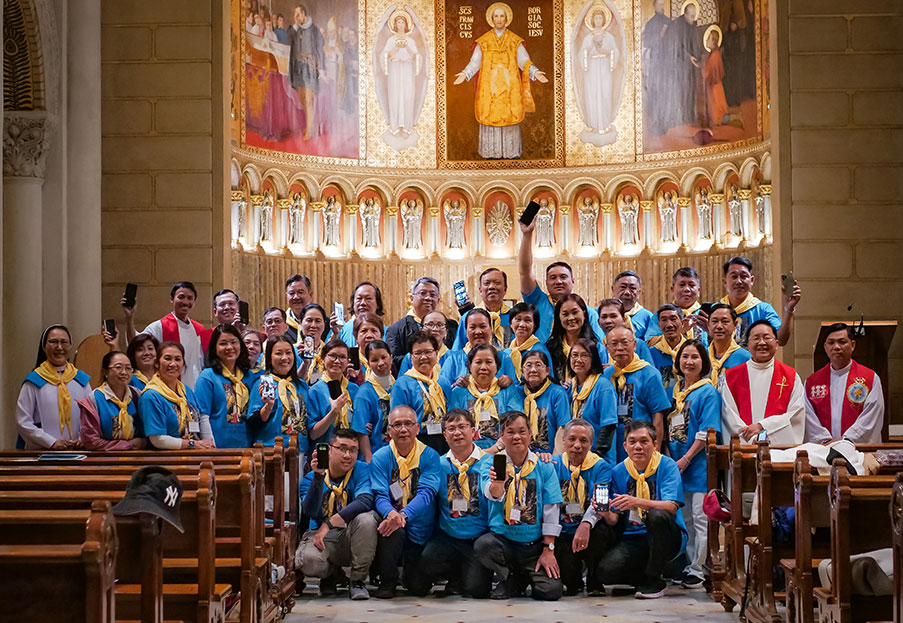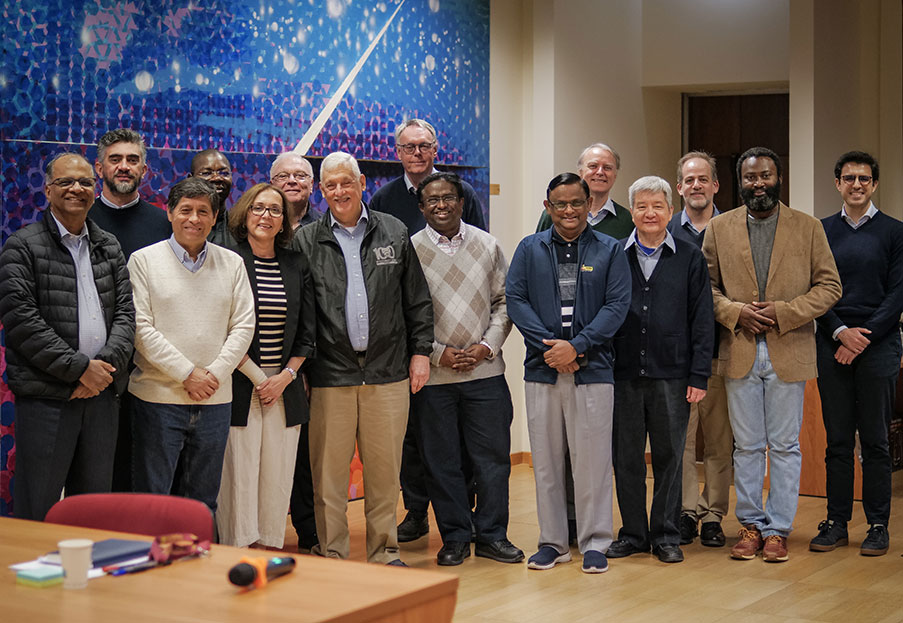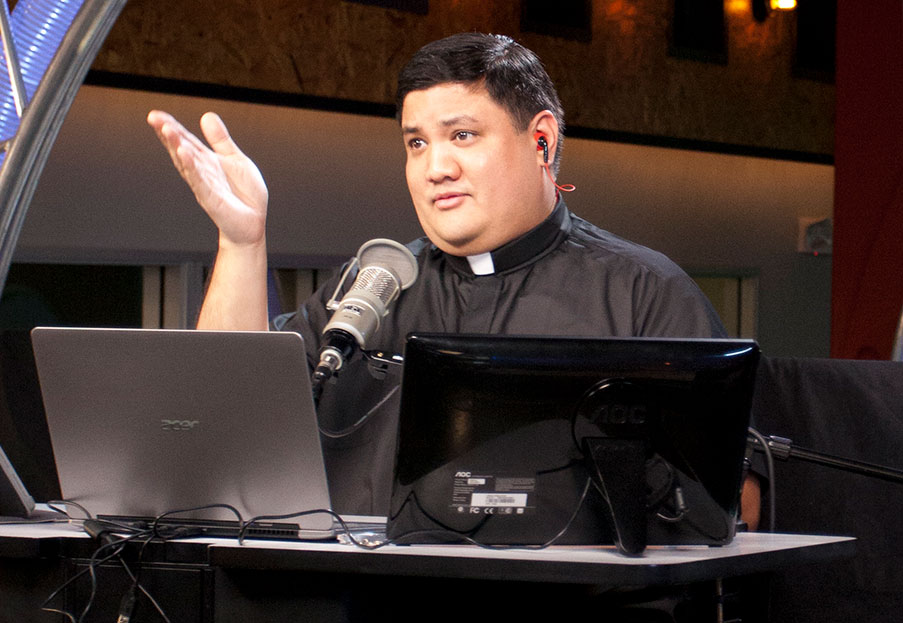“My kidnapping helped me to grow in faith, hope and love”.
Among the recent visitors to the General Curia,
we met Rogerio da Silva, a Brazilian Jesuit who has spent some seven years
ministering in Haiti, including four years as novice master. What can he tell
us about his experience - as a Jesuit - in this country that is struggling to
overcome political instability and great poverty?
Testimony of Rogerio Mosimann da Silva SJ
Rogerio da Silva, you, a Brazilian Jesuit, were novice master from 2017 until recently in Haiti. Tell us first what brought you to Haiti.
The call to go and contribute to the mission of the Society of Jesus in Haiti is consistent with my spiritual experience and the roots of my vocation: the desire that the Lord has put in my heart to serve the poor. If there is anything that is not missing in Haiti, it is the poor.
During your years in Haiti, the country has experienced so many challenges, so much hardship. Without attempting a socio-political analysis, what do you remember from your contacts with the Haitian people?
It
is paradoxical, but the strongest image I bring back from Haiti is the joy of
the Haitian people. In the midst of enormous, very real and unjust suffering (a
situation that must change!), the people of that country have an incredible
capacity to move forward in spite of everything, to always start over, to
laugh, to nourish hope. And a refined sensitivity to gratitude. And what
generosity! We think we’re going to bring them something, and we’re astonished
to see how much we receive when we go there. Really, the attitude of the
ordinary people evangelises us.
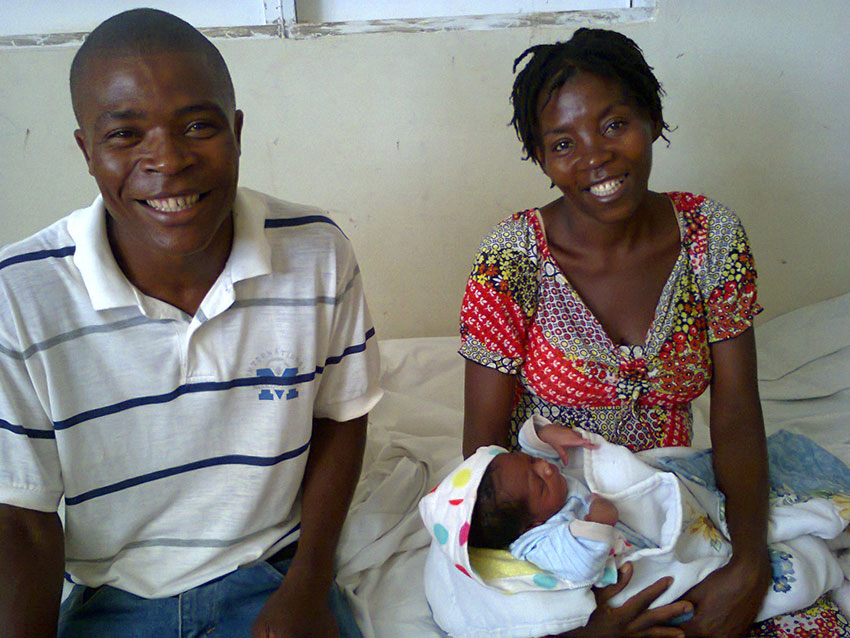
You were novice master in Haiti, what can you tell us about the young people you received in the novitiate? About their motivations, their strengths and weaknesses?
The young people who want to enter the Society are children of their country. And the country is going through a great crisis. The challenge is to help these young men to maintain the memory of their origins and to develop the zeal to serve their fellow compatriots, overcoming certain desires, even unconscious, to find in consecrated religious life an opportunity for personal privilege.
The fact that you were a “foreigner,” was it a particular challenge for you and for the novices? Were there cultural differences to be taken into account?
I suppose so. This is the challenge of inculturation. But the path of encounter is always one of dialogue. Of course, the Jesuit who comes from elsewhere must know how to respect the local culture, but the foreigner also brings a new perspective that can help to broaden the vision of the very reality of the country.
Many will have heard about the misadventure that happened to you at the very end of your stay in Haiti. You were the victim of a kidnapping - the work of one of the gangs currently operating in the country. How did you experience those days of abduction?
Nobody
wants to be a victim of violence. But when it happens, you can reap a lot of
benefits. I received this episode as a spiritual gift, because it helped me
grow in faith, hope and love. I had never felt so accompanied, first by the
Lord himself, and by my Jesuit companions, by my family and friends. I knew
that people were there praying for me, and this gave me great inner strength.
At the same time, the four days and nights I spent in the hands of the criminal
gang gave me the opportunity to feel more closely united with all the victims
of the violence ravaging the country. The Lord gave me the grace to be in
concrete solidarity and brotherhood with the people who face the same risk
every day.
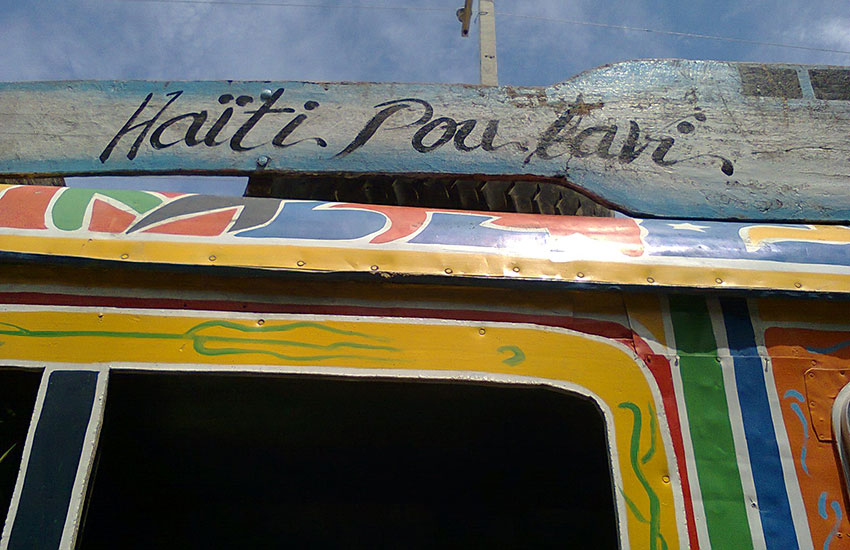
After having seen the young Haitian Jesuits grow up, how do you see the future of the Society of Jesus in Haiti? And what do you wish for your Haitian companions and for their country?
Haiti is experiencing an unprecedented crisis. The situation has always been difficult, but it has worsened immensely in recent years. No one, no social group, can be expected to have the solution or to know exactly what to do. You can’t expect it from the Church or from the Society of Jesus. I have the impression that the Society and the Church are still searching for their place in this alarming context. We need a solid spiritual experience that will enable us to discern our mission.
And we need to reconcile prudence and audacity. Of course,
we will not naively expose ourselves to risks, but if we remain prisoners of
fear, we will not be able to do anything. In order to live our solidarity, we
must find ways to be closer to the suffering people on a daily basis. This
implies renouncing situations of privilege or hints of a triumphal Church. We
must have the courage to choose the simple means, to journey with the ordinary
people. In the end, it is about loving the Haitian people deeply and, thanks to
this motivation derived from Christian love, making our existence a service, so
that Haitians may have Life. The Society can also offer its collaboration in
the field of reflection, helping to understand the dynamics that are developing
in Haitian society and the Church.
